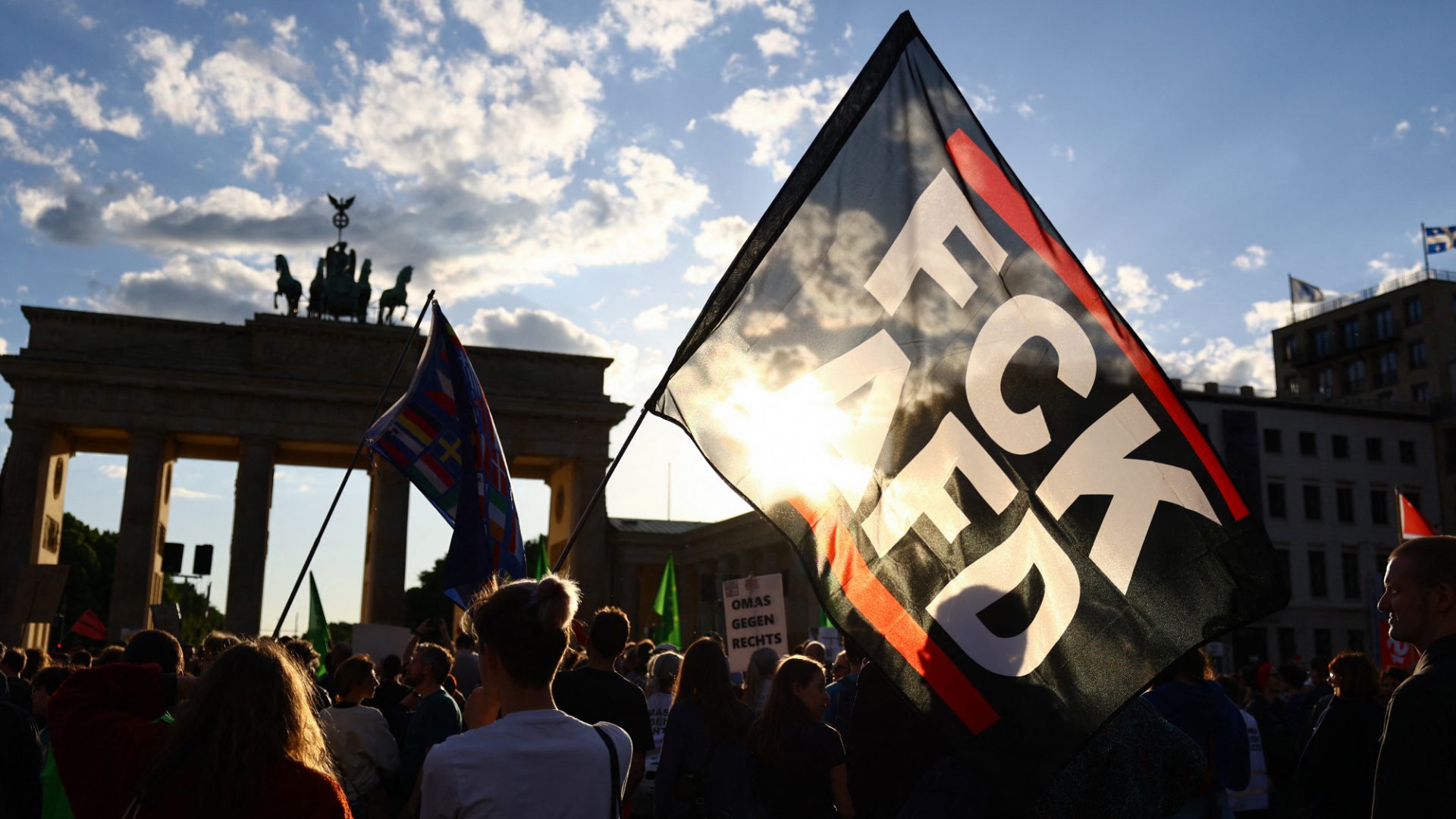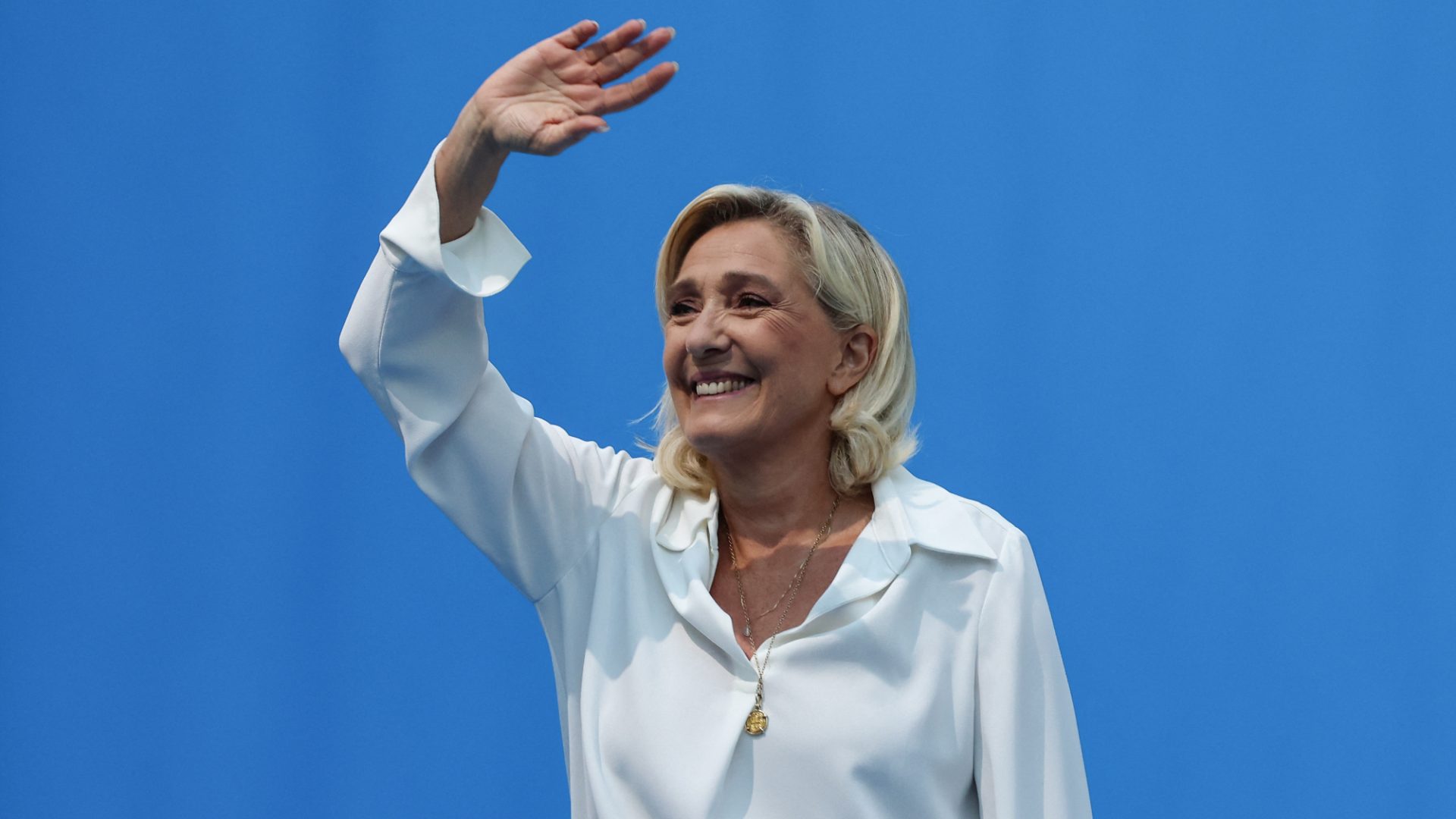According to a survey taken in April, Germans are paying much more attention to these EU elections than they did back in 2019. Seventy percent of Germans said they were interested – and 60% of Europeans overall felt likewise. We will only know after the elections who will benefit from this, but it is already safe to say that the extreme right will gain significantly.
In Germany, the omens are not good. First in line is the infamous party video from Germany’s northern peak of poshness, the island Sylt. A group of well-off tweens in classy leisure wear are shown and heard shouting “Deutschland den Deutschen – Ausländer raus!” to the sound of Gigi D’Agostino’s aged dancefloor hit L’amour toujours.
The clip, with the historically tainted slogan “Germany to the Germans!” and “Foreigners out” went viral, sparking such a massive public outcry about the “merino-wool Nazis” that the named-and-shamed protagonists are at risk of losing their jobs. As it wasn’t the only occasion where the song had been abused in that manner, the disgust against right wing radicalism in our bourgeois midst dominated the news agenda.
And then came last Friday’s hideous Islamist attack in the south-western town of Mannheim, which shocked the public. A 25-year-old Afghan stabbed the leader of an anti-Islamic fringe movement called Pax Europa during a rally. Several other campaigners were injured, and a policeman was also stabbed. He later died of his wounds. The incident was live-streamed.
Finally, Bundeskanzler Olaf Scholz, after his usual rhetorical to-and-fro, agreed to let Ukraine use German weapons on a limited section of Russian territory, to defend Kharkiv, which is still under heavy attack from Russia. Scholz and his SPD-frontrunner for the European elections, Katarina Barley, who holds dual British citizenship, are shown on campaign posters with the slogan “Secure Peace”. His latest decision may indeed help in doing so, but it will undoubtedly further alienate the many German voters who are already against military support for Ukraine and would rather see an unjust ceasefire than more ammunition sent to Kyiv. Both the far right AfD and the new far left BSW (an acronym for Bündnis Sarah Wagenknecht, an alliance named after its founder) rely on Russophile votes.
Currently, the Christian-democratic CDU polls at a stable 29-30% and will surely come first again. The number 2 position could, however, go to AfD this time. During the last European parliamentary elections they reached 11%; this year pollsters see them between 14% and 17%, while the Greens could drop from 20% in 2019 to 13-15% and join the SPD, which remains stable at a low level.
Given the margin of error (+/- two percentage points) the race for the second spot is still very much open. While the AfD will probably lose some swing voters to the populist left newcomer BSW (polling at 6%), it has managed to attract an ever-larger base of loyal voters over the years who are wholly unperturbed by the scandals piling up around AfD (see the New European issue no. 386).
In a recent TV town hall for party frontrunners, AfD had to send their no 3 because frontman Maximilian Krah and no 2 Petr Bystron are being investigated for links to Russia and China – connections that don’t quite match the party’s proclaimed patriotism. AfD successfully campaigns on social media, though, which some political scientists expect will help them to attract young voters, particularly young men. Other experts insist, however, that the youth care far more about Europe and the climate than for the far right.
Bear in mind that the voting age for European elections has been reduced to 16 in Germany – a first, and an experiment. The German government’s deputy spokeswoman, Christiane Hoffmann, mentioned to me on a panel last month how teenagers had incredulously asked her during an event: why on earth does the government think that our age group is ready to make informed political decisions? Fair point.
On the other hand – does voting necessarily get more diligent with age?
The one thing analysts agree on is that voters will use these elections to punish the German three-party coalition for what most people consider their poor performance. Experts also assume the parliament will be even more fragmented, predicting that single-issue parties may just grab a few of the 96 German seats, chipping away at what used to be much larger parliamentary groups in Brussels and Strasbourg.
Speaking of groups: the most interesting thing to look out for, when the polling dust has settled, is which EP group will want to associate themselves with the AfD. French far right icon Marine Le Pen already vowed not to cooperate with them two weeks ago. A day later, Italian right wing-nationalist Matteo Salvini followed her example. Upon request from Salvini’s Lega, all AfD MEPs were then kicked out of the European parliamentary group Identity and Democracy (ID).
The tipping point had been AfD-man Krah’s interview in La Repubblica. Asked if his call for Germans to be proud of their ancestors should include SS officers in the family tree, Krah replied: “It depends…” and elaborated on the usual AfD revisionism, which is particularly offensive for the many European countries that suffered at the hands of the SS.
So while the European Parliament is set to take a turn towards the right, it doesn’t follow that the AfD will gain influence. In fact, it looks pretty isolated.




